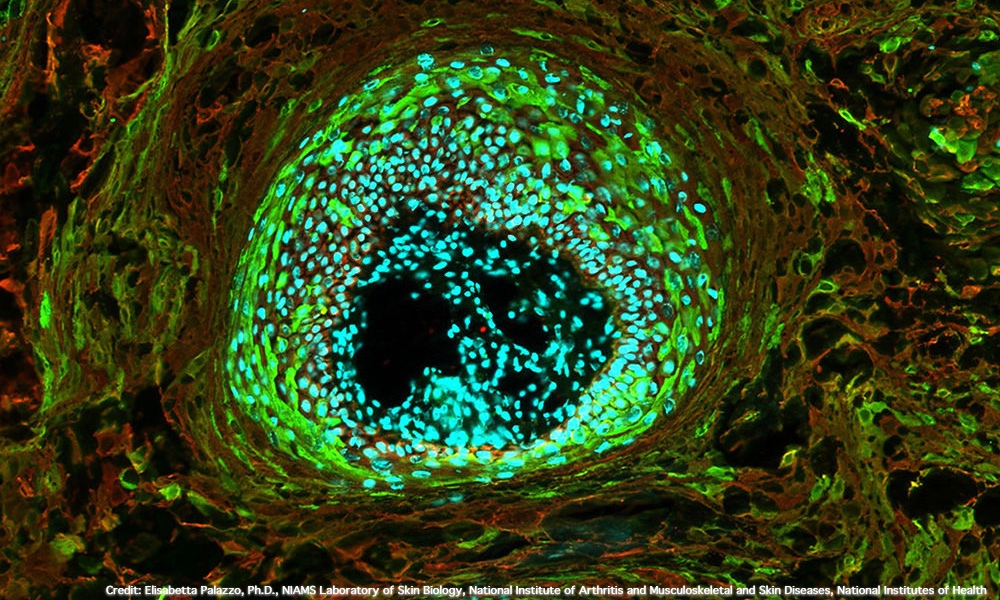For those diagnosed with skin cancer, the fear of it coming back can be almost as unsettling as the diagnosis itself. A new study offers hope that this won't happen. The protection comes from an inexpensive, over-the-counter supplement, niacinamide, also known as nicotinamide, a form of vitamin B3.
Researchers reviewed the health records of nearly 34,000 U.S. veterans from October 1999 through December 2024 and compared over 12,200 patients who took nicotinamide (500 mg, twice daily, for at least a month) with 21,400+ patients who didn't.
It turned out that nicotinamide users had a 1.4 percent overall reduction in skin cancer risk. More impressive was the finding that the risk of recurrence dropped by over half for those who started the supplement after their first skin cancer diagnosis, though the benefit declined for those who waited until after multiple skin cancers before starting the vitamin.Scientists believe nicotinamide helps cells repair DNA damage caused by ultraviolet rays, and reduces the immune-suppressing effects of sunlight.
Skin cancer is the most common cancer in the United States, with an estimated 5.4 million basal and squamous cell carcinomas diagnosed each year, according to the American Cancer Society. Treatment costs exceed $8 billion annually, making prevention critical.
Nicotinamide has been studied before, most notably in a 2015 Australian clinical trial of 386 patients, which found fewer new skin cancers among those taking the supplement. But this new VA study is by far the largest to confirm the benefit, bringing real world validation to what many dermatologists have long suspected.
“There are no guidelines for when to start treatment with nicotinamide for skin cancer prevention in the general population. These results would really shift our practice from starting it once patients have developed numerous skin cancers to starting it earlier. We still need to do a better job of identifying who will actually benefit, as roughly only half of patients will develop multiple skin cancers,” said the study's corresponding author, Lee Wheless, an assistant professor of Dermatology and Medicine at Vanderbilt University Medical Center and a staff physician at VA Tennessee Valley Healthcare System.
How does it work? Scientists believe nicotinamide helps cells repair DNA damage caused by ultraviolet (UV) rays, while also reducing the immune-suppressing effects of sunlight. These two actions likely explain its proactive effects against non-melanoma skin cancers.
The best candidates for the vitamin treatment are patients who have already had a first skin cancer diagnosis. It's less beneficial for those who have already had multiple recurrences.
Experts emphasize that nicotinamide does not replace sunscreen or other sun-protective measures. It should be considered an added layer of protection for folks who are more vulnerable.
Taken together, the finding points to nicotinamide as a safe, affordable and accessible way to keep skin cancer from returning. That's a big win for added peace of mind.Unlike niacin, another form of vitamin B3, nicotinamide doesn't cause flushing and is well tolerated at standard doses.
- Seek shade whenever possible
- Wear sun-protective clothing when outdoors in the middle of the day
- Apply a broad-spectrum, water-resistant sunscreen with an SPF of 30 or higher
- Reapply sunscreen every two hours, or after swimming or sweating.
- Use extra caution when near reflective surfaces like water, snow and sand
- Avoid tanning beds
- Check for changes to moles and other skin growths regularly
- See a board-certified dermatologist if you notice new or suspicious spots on your skin, or anything changing, itching or bleeding.
In the end, of course, skin cancer prevention is always preferable to treatment. The study is published in JAMA Dermatology.





